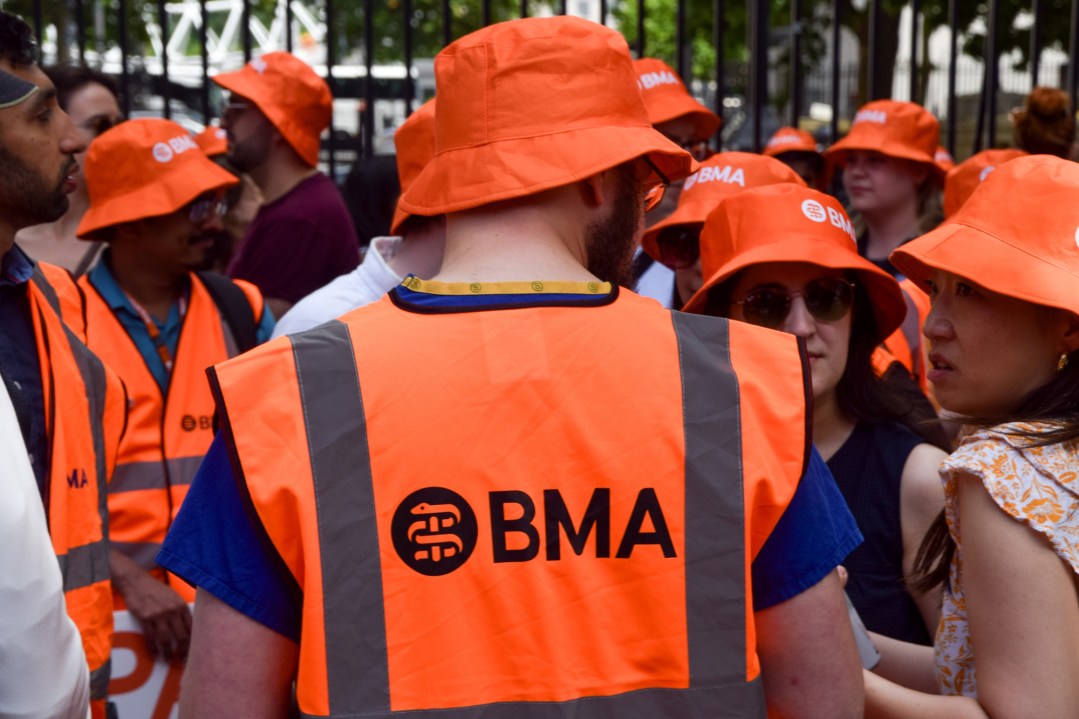Who would have guessed that caving into union militancy and paying a whacking above-inflation pay rise, with no strings attached, would lead to even bigger pay demands? In one of its first acts after coming to power last July the Starmer government awarded junior doctors a 22 per cent pay rise, which they accepted and ended their run of strikes. Is anyone really surprised the BMA has come back this year demanding 30 per cent, threatening yet more strikes? It is not hard to guess what would happen were the government to cave in again: next year’s demand would come in at 50 per cent.
Who would have guessed that caving into union militancy and paying a whacking above-inflation pay rise, with no strings attached, would lead to even bigger pay demands?
The BMA’s case is that the pay of junior doctors (who now demand to be called ‘resident’ doctors to disguise the fact they are still in training and that their pay will jump considerably when they are qualified) has been eroded, relative to inflation, by 22.3

Britain’s best politics newsletters
You get two free articles each week when you sign up to The Spectator’s emails.
Already a subscriber? Log in








Comments
Join the debate for just $5 for 3 months
Be part of the conversation with other Spectator readers by getting your first three months for $5.
UNLOCK ACCESS Just $5 for 3 monthsAlready a subscriber? Log in